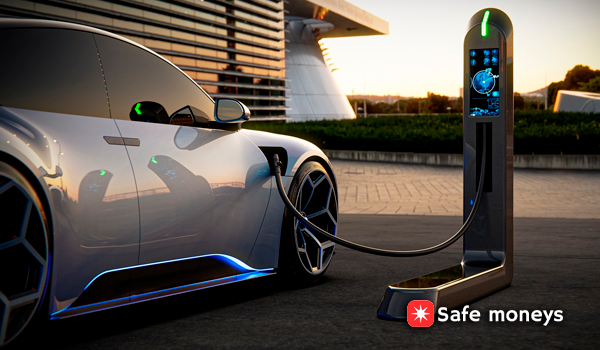If you’re considering switching to an electric vehicle (EV), understanding how its battery impacts your expenses is key. From fuel savings to government incentives, EVs offer multiple ways to reduce costs while supporting a cleaner lifestyle.
Reduced Fuel and Maintenance Expenses
Electric vehicles slash fuel costs significantly. Charging at home or public stations is far cheaper than filling a gas tank, especially over the course of months or years. These daily savings quickly add up for drivers who commute often or travel long distances.
Maintenance is another area where EVs outperform. Without oil changes, engine tune-ups, or other combustion-related upkeep, owners spend far less on routine service. Fewer moving parts also mean fewer breakdowns and lower repair bills overall.
Extended Battery Lifespan = Lower Lifetime Costs
Modern EV batteries are built to last. Many outlive the vehicle they power, which reduces the likelihood of expensive replacements. As technology improves, battery durability and performance continue to rise, further enhancing cost-efficiency.
To ease initial costs, many regions offer tax credits, rebates, or grants to EV buyers. These programs make electric vehicles more financially accessible while encouraging sustainable choices.
A Step Toward Energy Security
Driving an electric car helps reduce reliance on volatile fuel markets. Since electricity prices are more stable than gas, EV owners enjoy consistent transportation costs over time.
Resale value is another financial advantage. Thanks to rising demand and better charging infrastructure, used EVs—especially those with newer battery systems—now hold value better than many gas-powered alternatives.
Environmental Savings With Financial Impact
Beyond economics, EV batteries contribute to a healthier planet. Reducing tailpipe emissions means cleaner air and a smaller carbon footprint—benefits that indirectly translate to lower public health and climate-related costs.
Many homeowners now pair EVs with solar panels and use the car battery to store excess energy. This setup cuts home energy bills and enhances grid resilience during peak hours.
Support from governments continues to grow, with new initiatives making clean transportation more affordable and widespread. Choosing an EV today isn’t just an environmental decision—it’s a financially sound one too.


 Business Credit Cards Made Easy: Your Step-by-Step Approval Guide <p class='sec-title' style='line-height: normal; font-weight: normal;font-size: 16px !important; text-align: left;margin-top: 8px;margin-bottom: 0px !important;'>Ready to take control of your business finances with a credit card? Here's how to apply confidently—and get approved faster.</p>
Business Credit Cards Made Easy: Your Step-by-Step Approval Guide <p class='sec-title' style='line-height: normal; font-weight: normal;font-size: 16px !important; text-align: left;margin-top: 8px;margin-bottom: 0px !important;'>Ready to take control of your business finances with a credit card? Here's how to apply confidently—and get approved faster.</p>  Future-Proof Careers: Roles Rising with Innovation and Sustainability <p class='sec-title' style='line-height: normal; font-weight: normal;font-size: 16px !important; text-align: left;margin-top: 8px;margin-bottom: 0px !important;'>The job market is undergoing radical change. Here's how to stay ahead by focusing on the careers gaining traction in tech, health, and the environment.</p>
Future-Proof Careers: Roles Rising with Innovation and Sustainability <p class='sec-title' style='line-height: normal; font-weight: normal;font-size: 16px !important; text-align: left;margin-top: 8px;margin-bottom: 0px !important;'>The job market is undergoing radical change. Here's how to stay ahead by focusing on the careers gaining traction in tech, health, and the environment.</p>  Self-Employed Tax Hacks: Must-Know Deductions to Keep More of Your Income <p class='sec-title' style='line-height: normal; font-weight: normal;font-size: 16px !important; text-align: left;margin-top: 8px;margin-bottom: 0px !important;'>Discover the smartest ways to save on taxes as a freelancer or business owner. Every dollar counts—don’t leave money on the table.</p>
Self-Employed Tax Hacks: Must-Know Deductions to Keep More of Your Income <p class='sec-title' style='line-height: normal; font-weight: normal;font-size: 16px !important; text-align: left;margin-top: 8px;margin-bottom: 0px !important;'>Discover the smartest ways to save on taxes as a freelancer or business owner. Every dollar counts—don’t leave money on the table.</p>